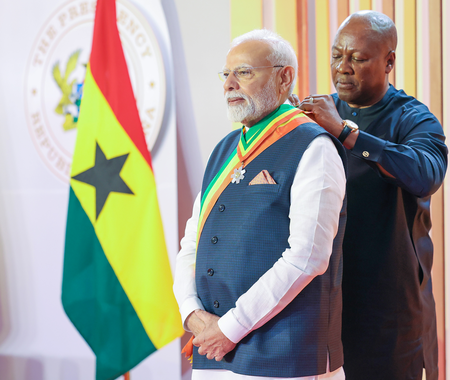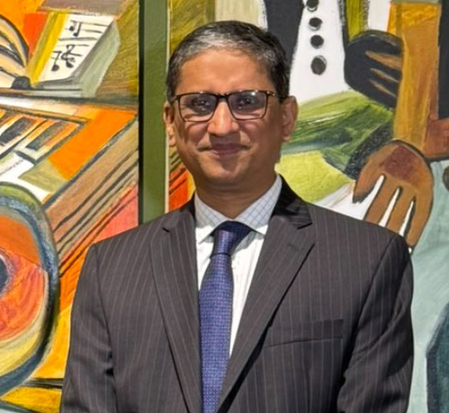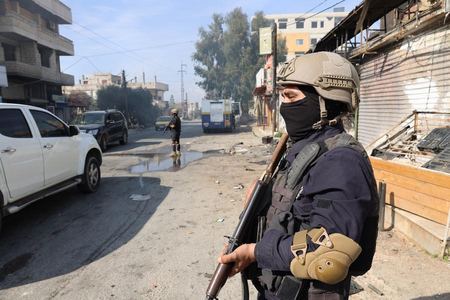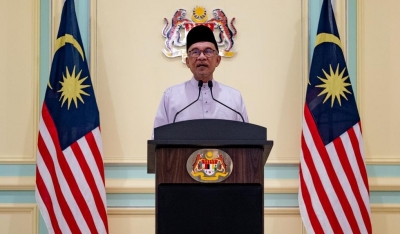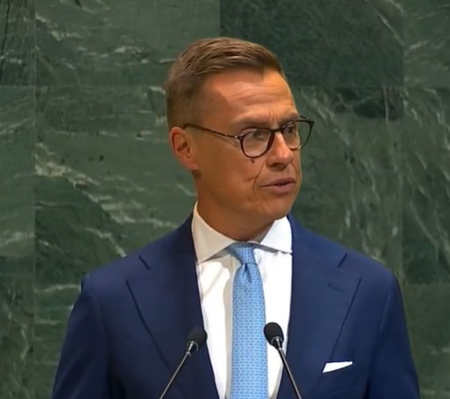
New York, Oct 1 (IANS) Finland and India’s perspectives regarding multipolarity, global governance and legitimacy overlap significantly, demonstrating how concerns about reforms are now widely shared. Finland President Alexander Stubb’s call for reform of multilateral institutions in his speech at the United Nations General Assembly (UNGA) echoed India’s demand for a seat at the United Nations Security Council (UNSC), a report highlighted on Wednesday.
While addressing the 80th session of UNGA, Stubb stressed the importance of the principles of multilateralism, legitimacy, and rules-based international order. For India, his speech was not only refreshing but also timely as he consistently stressed that global governance structures still demonstrate the realities of 1945, a report in India Narrative detailed.
“While there are differences in approach and emphasis, his speech resonates strongly with India’s concerns, with multiple points of alignment that reinforce New Delhi’s worldview. At its core, President Stubb’s speech argues that global politics must balance values, interests, and power. He expressed this with a simple proposition, ‘In its simplest form, foreign policy is based on three pillars: values, interests, and power’. This triad is no stranger to Indian diplomacy,” the report mentioned.
For years, India has been navigating between its normative commitments, such as democracy, non-alignment, and sovereignty, and its interests in security and development, while simultaneously acknowledging the power asymmetries of a world dominated by major powers. When Stubb suggested that transactional foreign policies must be based on enduring values, he articulated a framework that India also uses in climate negotiations, its partnerships in the Indo-Pacific region and trade diplomacy.
“Moreover, Stubb’s call for reform of multilateral institutions in his speech directly echoed India’s long-standing demand for a seat at the global high table at the United Nations Security Council (UNSC). His critique that “the composition of the UN still largely reflects the world of 1945. As the world has changed drastically, so should the decision-making at the UN” resonates with India’s stance concerning the United Nations,” it added.
In his address, Stubb also recognised the rise of the Global South and the shift in power towards the South and the East. India has been consistently portraying itself as the Voice of the Global South, highlighting the issues of development and representation in international forums while seeking to reduce the gap between developed and developing nations.
“Furthermore, Stubb’s defence of sovereignty, territorial integrity, and prohibition of the use of force also resonates with India’s geopolitical dilemmas. India has consistently framed its diplomacy around these core principles of international law, whether in facing cross-border terrorism, in navigating border disputes, or in voicing concerns over unilateral interventions. Thus, India’s own security concerns are underscored by such reaffirmations of sovereignty in a world where territorial aggression, from Ukraine to West Asia, has destabilised regional orders,” wrote Professor Jayesh Khatu.
Finnish President’s address tries to showcase a rare convergence between Europe and India and it indicates a recognition that underlines that multipolarity without legitimacy is unstable and that legitimacy without reforms would look hollow. India, the report concluded, can use Stubb’s arguments to strengthen its stance for global governance reforms while highlighting the perspectives of the Global South.
–IANS
akl/as

